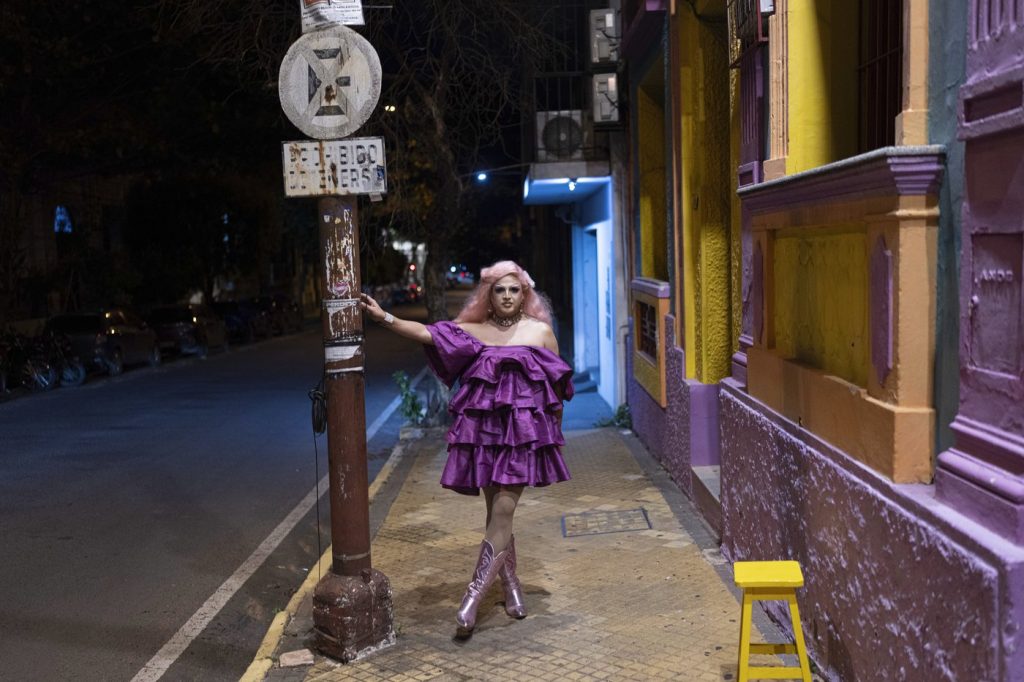In Paraguay, one of the most conservative nations in the Americas, LGBTQ+ individuals face significant discrimination, harassment, and violence, leading many to leave their hometowns. Transgender individuals, such as Alejandra Mongelós, who began identifying as trans at age 8 in 2013, exemplify the risks faced in such a repressive environment.
Mongelós' life drastically changed after she was molested by a relative, resulting in a family dispute that saw her mother imprisoned. Following this trauma, Mongelós was placed in multiple foster homes, approximately 30, where she faced routine mistreatment. At 13, after being taken under the wing of another trans woman, she began her search for a place that would accept her identity.
Paraguayan society, characterized by strong macho attitudes, continues to discriminate against LGBTQ+ individuals. The Catholic Church has a significant influence, with about 90% of the population identifying as Catholic. Following the end of a repressive dictatorship in 1989, the conservative Colorado Party has maintained political power since 1947. Controversial comments made by former President Horacio Cartes and current President Santiago Peña highlight a political landscape that openly rejects LGBTQ+ rights, firmly supporting traditional views of marriage and family.
Legal frameworks do little to protect LGBTQ+ rights in Paraguay. The Constitution prohibits discrimination, yet in practice, there are no legal recognitions of transgender identity or hate crimes. This lack of representation exacerbates a culture where hate and discrimination flourish, forcing individuals like Mongelós to leave home for safer environments.
Many LGBTQ+ individuals find refuge in shelters like Casa Diversa, which was founded by activist Yrén Rotela in 2018. The shelter not only offers safety but also provides resources for employment, addiction recovery, and support networks. Most residents migrate within Paraguay, seeking safety and community away from the violence that LGBTQ+ people often face in public spaces. Reports of trans women being attacked, harassed, and even murdered are commonplace, frequently going unrecorded due to a pervasive lack of trust in law enforcement.
Despite these challenges, activists like Isabel Gamarra and Nelson Viveros continue to fight for LGBTQ+ rights in Paraguay. Gamarra, who transitioned at age 15, became a sex worker to survive and later fled to Argentina due to violence but returned to Paraguay determined to advocate for change. Viveros, known for his drag persona Dislexia, engages in activism and shares the harassment he faces as a gay man. His experiences underscore the societal pressure to conform to traditional gender norms for personal safety.
Each year on September 30, LGBTQ+ advocates gather to commemorate the historic resistance against oppression, pushing for legal recognition of their rights. The ongoing struggle for dignity goes beyond mere legislative changes, as activists emphasize the need for societal acceptance and respect. Rotela passionately articulates the importance of addressing deep-seated prejudices, recognizing that legal protections will be ineffective without a cultural shift towards acceptance.
In conclusion, the fight for LGBTQ+ rights in Paraguay remains fraught with challenges, as individuals like Mongelós and activists such as Rotela and Viveros continue to navigate a landscape marked by violence and discrimination. Their stories highlight the urgent need for comprehensive legal protections and societal change to foster a more inclusive environment.











